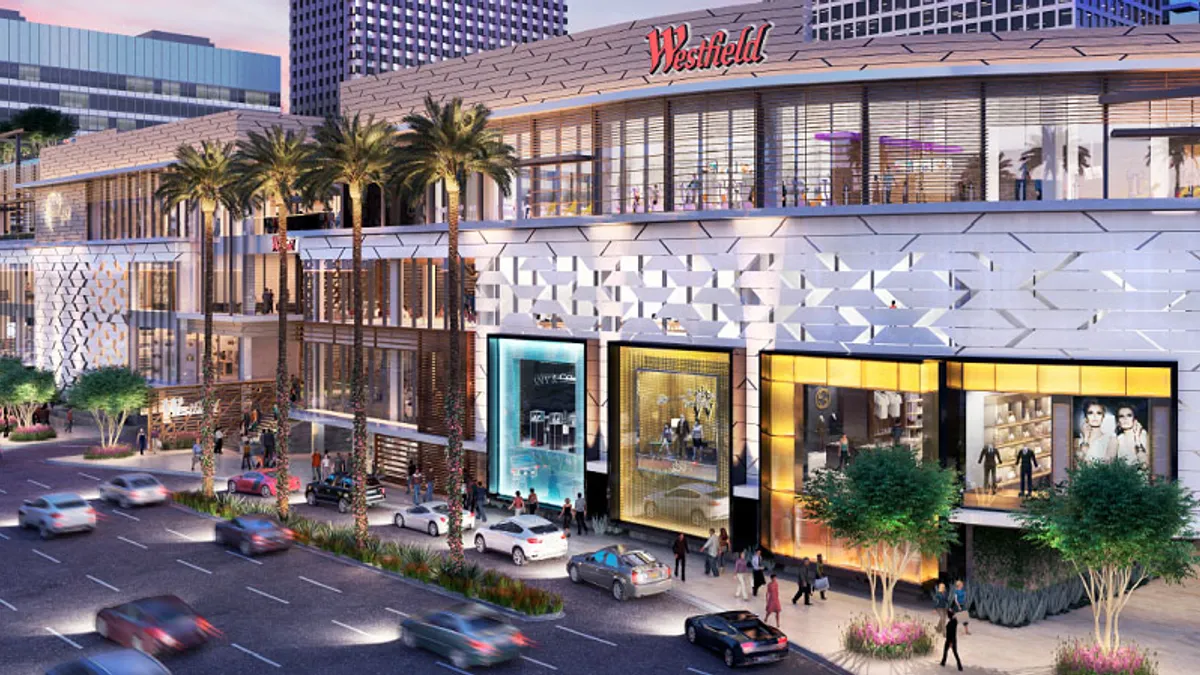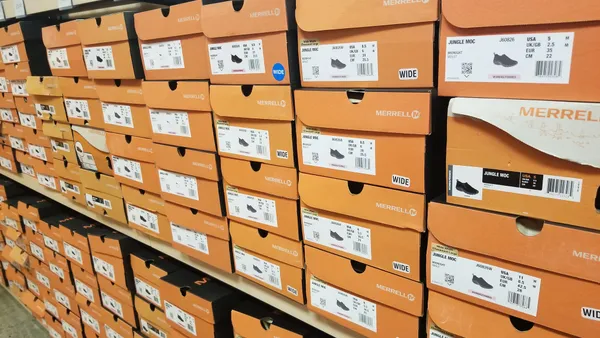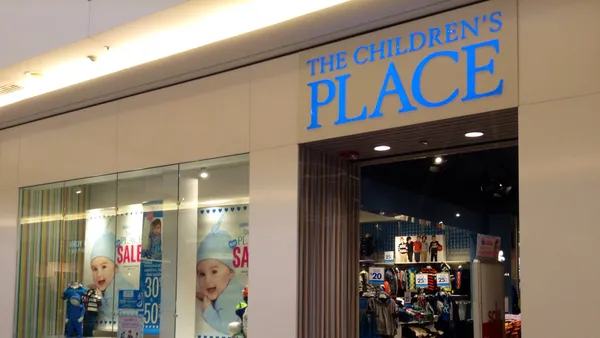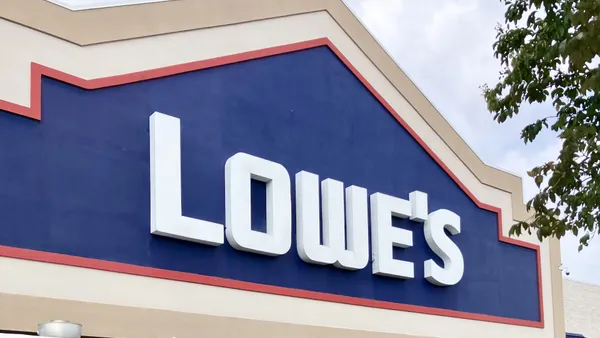Dive Brief:
-
Australian mall conglomerate Westfield Group, which owns 35 high-end shopping centers in the U.S. and U.K., on Tuesday agreed to a $15.7 billion ($24.7 billion including debt) acquisition by European rival Unibail-Rodamco, according to a company press release.
-
Paris-based Unibail-Rodamco is Europe's largest commercial property company with 69 shopping centers across the continent's wealthiest cities. Upon approval from regulators, the deal would consolidate two of the world's biggest mall operators.
-
The deal notably marks the end of Westfield management by the Lowy family. Longtime chairman Frank Lowy, co-CEOs Peter and Steven Lowy, as well as COO Michael Gutman and CFO Elliott Rusanow will retire from the company. Two Westfield board members, including Peter Lowy, will be appointed to Unibail-Rodamco's supervisory board, and a newly created advisory board will be chaired by Frank Lowy.
Dive Insight:
To Frank Lowy, who founded the Westfield organization in Sydney, Australia in the early 1960s, the deal marks the "culmination of the strategic journey Westfield has been on since its 2014 restructure," he said in a statement on the news. Three years ago, the company separated from its Australian and New Zealand operations and looked to reinvigorate its U.S. and U.K. properties at a time when malls began to feel heightened pressure from declining foot traffic brought on by the popularity of e-commerce and Amazon specifically.
While those concerns are still very much top of mind for all mall developers, Westfield is on better ground thanks to its high-end malls that dot major metropolitan cities — and Unibail-Rodamco clearly sees a big opportunity. Not only does the deal give it an opening into the U.S. retail market, but also a popular logo with which to breathe new life into its European malls.
While some malls are certainly destined for death, A-class malls (like those held by Westfield) are finding ways to prosper despite a slew of bankruptcies ailing mall-based specialty apparel chains like The Limited, Wet Seal, Rue21 and Payless. Gone are the days where anchor stores like Sears and Macy's draw shoppers in as one-stop shopping destinations. Malls aren't going away completely anytime soon, but they are starting to look different. Many are finding success by transforming these spaces into lifestyle centers that house cinemas, restaurants and immersive shopping experiences.
"The mall is not dead, just changing," Marshal Cohen chief industry analyst, retail, NPD Group, told Retail Dive earlier this year. "Give it a minute to get decent." For Westfield, the deal means a lot of financial help as it transforms its malls into experiential locations that give shoppers a reason to head into an actual store. The holiday season will be telling — online sales, especially mobile, are surging and everyone is waiting to see if foot traffic to stores and malls that have invested in making their environments more experiential will also be strong.
The deal also comes on the heels of GGP's rebuke of a $14.8 billion low ball offer from Brookfield Property Partners. That acquisition would have rivaled the Westfield deal as one of the world’s largest publicly traded property companies.
This story is part of our ongoing coverage of the 2017 holiday shopping season. You can browse our holiday page and sign up for our holiday newsletter for more stories.














